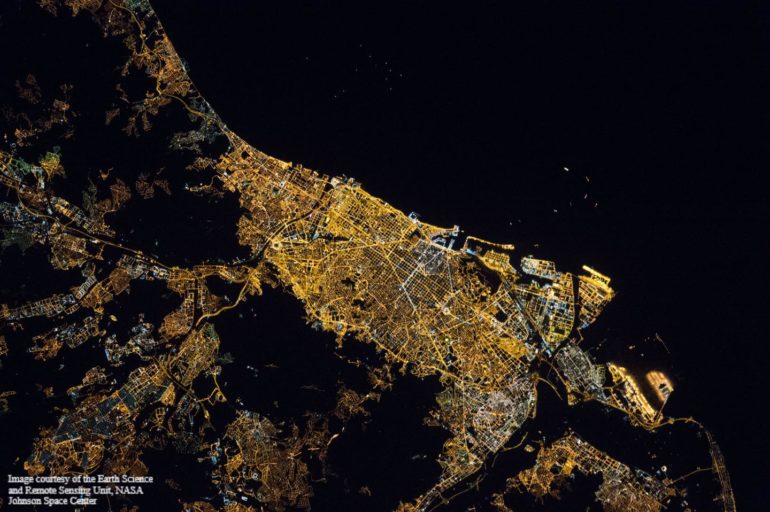IMAGE: International Space Station night image of Barcelona, courtesy of the Earth Science and
Remote Sensing Unit, NASA. 18 April 2013. Time: 22:10:46 GMT (local time 00:10:46)
(ISS035-E-23385)….
view more
Courtesy of the Earth Science and
Remote Sensing Unit, NASA.
Blue light has become an increasingly common component of urban outdoor lighting. But how does it impact our health? A team led by the Barcelona Institute for Global Health (ISGlobal), a centre supported by the “la Caixa” Foundation, has conducted the first study of the association between night-time exposure to outdoor artificial light and colorectal cancer. The findings, published in Epidemiology, show that exposure to the blue light spectrum may increase the risk of this type of cancer.
Previous studies have found associations between night-time exposure to artificial light–especially blue light–and various adverse health effects, including sleep disorders, obesity and increased risk of various types of cancer, especially in night-shift workers. Blue light is a range of the visible light spectrum emitted by most white LEDs and many tablet and phone screens. An earlier study by ISGlobal found a link between exposure to blue light at night and increased risk of breast and prostate cancer.
“Using the same methodology as the previous study, we decided to analyse the relationship between exposure to artificial light and colorectal cancer, the third most common type of cancer worldwide after lung and breast cancer,” explained Manolis Kogevinas, Scientific Director of the Severo Ochoa Distinction at ISGlobal and coordinator of the new study. The World Health…



